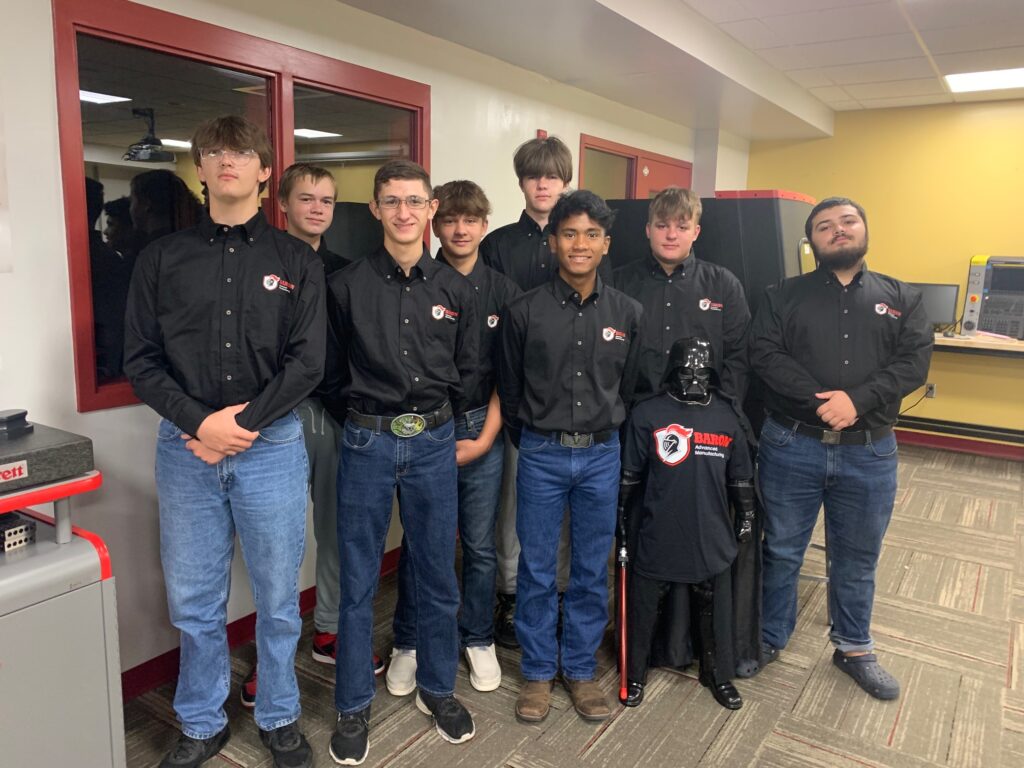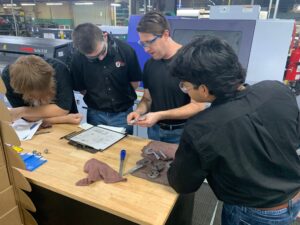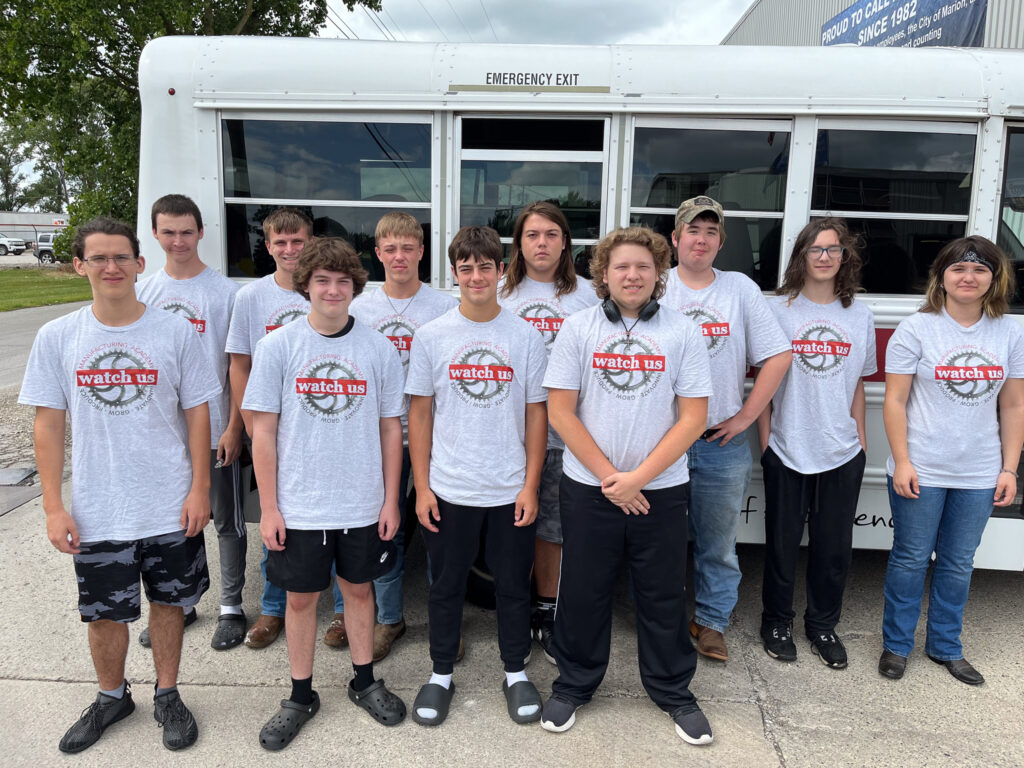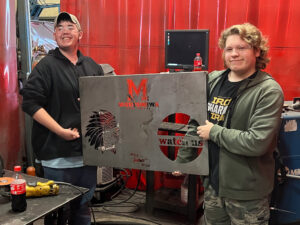Purdue IN-Mac creates Pathways between industry and educators
DeKalb County Central United School District Assistant Superintendent Lori Vaughn was sitting in her office watching an online presentation when she jumped out of her chair and ran down the hall to where two colleagues were watching the same presentation.
“This is exactly what we’ve been talking about!” she exclaimed.
What prompted her excitement? A presentation about the Indiana Next Generation Manufacturing Competitiveness Center, better known as IN-MaC. Hosted by Purdue University and delivered in partnership with Ivy Tech Community College and Vincennes University, Purdue IN-MaC works to build up Indiana’s advanced manufacturing sector, in part by strengthening the relationship between industry and educators.
It’s a relationship Vaughn and her school system had tried to build on their own, with little success. “We had so many conversations with community partners trying to engage industry and manufacturing,” she said. “We always hit a wall. We didn’t speak the same language.”

You could say that IN-MaC provided a sort of translation service that helped DeKalb Central forge working relationships with local employers. Today, students have five local companies offering them real-world experience to prepare them for advanced manufacturing careers.
Forging connections is just a part of what IN-MaC does to boost Indiana’s economy. With an overall focus on workforce education, technology adoption and manufacturing research, IN-MaC also provides micro-grants, operates a training program for high school educators and a summer internship program connecting post-secondary students to manufacturers, and drives an industry tech adoption program.

A key component of IN-MaC’s offerings for schools like DeKalb Central is its Pathways System, which through a mix of classroom and work-based learning, introduces students to advanced manufacturing concepts and equipment and gives them hands-on experience with local employers.
Classroom work in the program begins as early as freshman year, starting a process that gives students a basic orientation to advanced manufacturing and provides safety training as well as exposure to CNC machining, maintenance roles, quality control and more. Specifics vary by program but in many cases, in their junior years, the kids begin to get on-site job training with local employers, spending one day a week at worksites. Rotating among industry partners’ operations to get a broad experience, the students increase their out-of-school training up to three days a week when they’re seniors, and by the final semester of their senior year, they’re doing paid internships four days a week. Many of them complete the program with industry certifications.
Although this “pathway” to the advanced manufacturing sector is built on a clearly defined program, no two programs are alike.

“These are not cookie-cutter experiences,” said Lisa Deck, IN-MaC’s program manager for education and workforce. In fact, because each school system develops its program in collaboration with nearby industry partners, each student’s involvement is tailored to their community and the skills they need to get jobs there. Certainly, the skills are transferable to any advanced manufacturer, but by building the local program around local needs, Pathways helps to ensure that students enter the workforce with the ability to get jobs close to home and employers have a workforce that is ready to go to work.
Part of this tailoring process involves working directly with area employers in planning the program. Larry Bryant, industrial technology teacher at Mississinewa Community School Corporation, said that when the program was developed in partnership with IN-MaC, local employers were involved in conversations about what equipment should be purchased for the program, what skills should be taught and more when the program was being developed. In addition, he’s in discussions with one of his partner companies that wants to donate equipment for use in the classroom.

Although his program is only a year old, Bryant said he has about a dozen students spending time at local firms Wiley Metal and American Woodmark, and 60-70 students involved in “feeder” classes, ranging from those who already are looking toward jobs in advanced manufacturing and those who have no idea what they want to do in the future.
Jonathan Clingan, director of DeKalb High School’s Baron Advanced Manufacturing, notes that Pathways offers career insights for all kinds of students, not just those focused on shop-floor roles. “We have students who want to be engineers, who want to be CNC machinists and students who don’t know what they want to do,” he said. With 29 juniors and seniors in the program now and a goal of expanding up to as many as 100, DeKalb has established working partnerships with Auburn Manufacturing, Metal Technologies, Charleston Metal, Rathburn Tool and Rieke Packaging.
Another way that IN-MaC helps schools and industry partners is by working to identify obstacles early and designing solutions centered around consensus. For example, finding a qualified program leader can be a challenge, and some guidance counselors, teachers and parents have to be convinced that not every student should be preparing for college. Finding funding for the program can also present a challenge, but grants are available, and many employers are willing to support it once they realize that there is a real return on investment in these programs. IN-MaC helps schools navigate through these barriers, prioritize opportunities and connect with resources.

At Mississinewa, Bryant feels his program is limited only by the number of companies that get onboard. While only American Woodmark and Wiley Metal are actively taking students now, others are involved in planning and conversations about the future, and all are excited by the prospects for building a pipeline of skilled workers who are ready to contribute as soon as they enter the workforce.
Even so, they might not be as excited as Bryant. Now in his tenth year of teaching, he displays an enthusiasm that’s reminiscent of Lori Vaughn’s hallway sprint when she first heard of IN-MaC. Talking excitedly about the growth of the students over the course of the year, and the way they’re fitting in with community partners “like a little family,” Bryant summed it up by saying, simply, “It’s a great time to be an educator.”